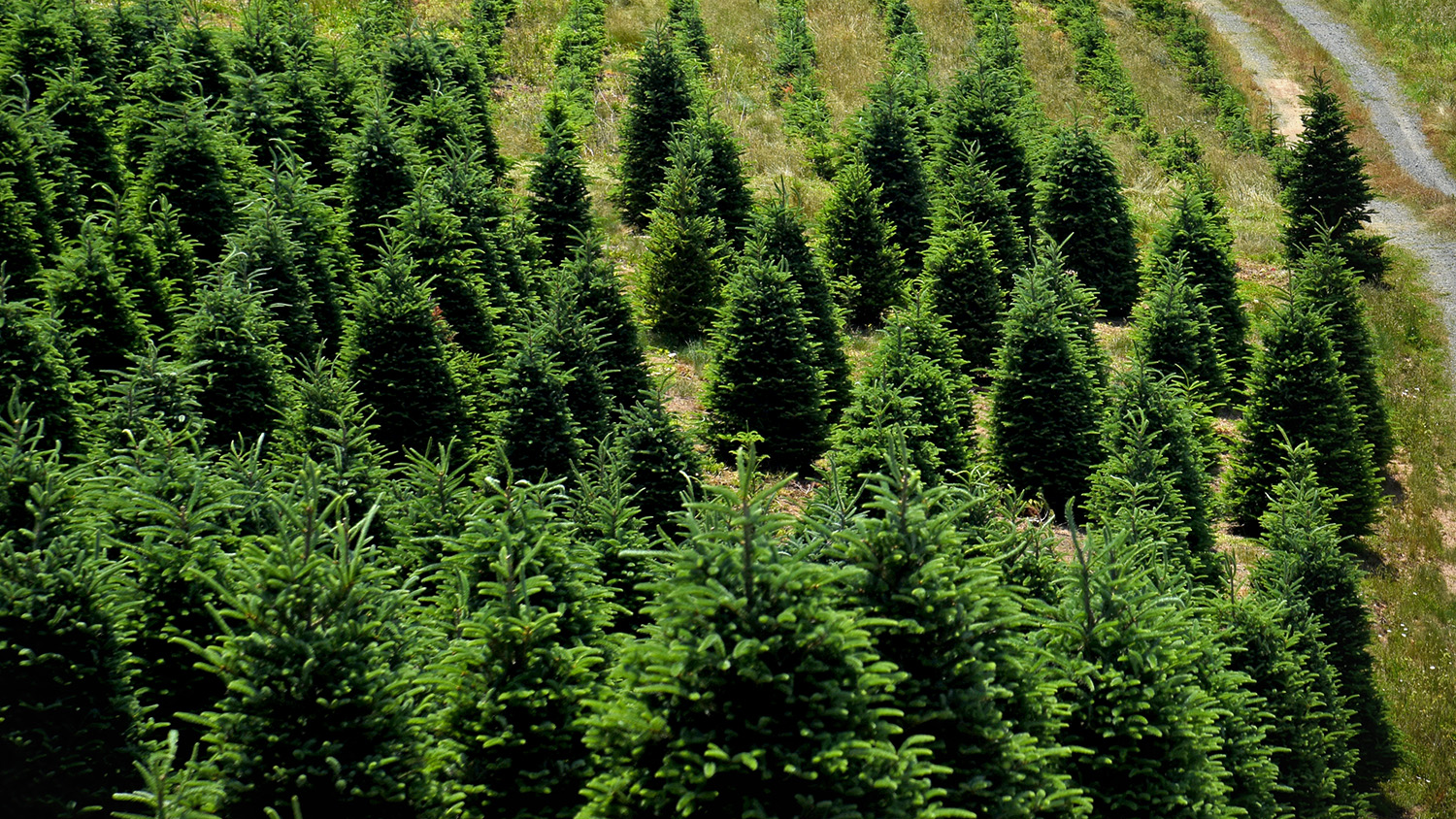Deal Family Supports Future of North Carolina Christmas Trees

It’s not easy to grow a Christmas tree. It takes hard work, dedication and more than a little luck with the weather. Earl Deal knows all about that. He might even add that there’s one more thing it takes: passion.
Deal, who graduated from the NC State College of Natural Resources in 1966 with a degree in forest management, started tree farming as a weekend hobby decades ago as a young professor in Wood Products Extension.
While Deal and his wife Betsy taught — he at NC State and she at Wake County Schools — he often headed west to Laurel Springs, North Carolina to tend to what has grown to more than 250,000 trees that populate Smokey Holler Tree Farm.
He and his family — son Buddy, Buddy’s wife Della, and daughter Meg — still run the farm, which in 2005 won the honor of presenting an 18.5-foot Fraser fir grown at Smokey Holler as the White House Christmas Tree. First Lady Laura Bush accepted the 21-year-old tree and watched with the Deal family as it was taken to the Blue Room for display.
The family is investing more than its hard work in the future of its beautiful trees. Earl Deal has recently made a planned gift via his estate to add to the Deal Family Christmas Tree Research Endowment.
The endowment, combined with other research funds and gifts, is designed to support Christmas tree research for North Carolina growers. About 15 other like-minded tree farmers in North Carolina and surrounding counties in Virginia and Tennessee have also established endowments for the industry.
Deal said research is critical to the future of the Christmas tree industry, solving problems that can hurt the quality and quantity of trees and improving the economics of the tree business.
He actively encourages his fellow tree growers to contribute to the college’s research funds and spends a good deal of his own time on research at his own farm, where he grows Fraser firs, White pine, Blue spruce, Concolor fir, Norway spruce and Canaan fir.
“I retired from the extension service in 1998. But honestly, I’m still working. I just changed jobs,” Deal said. “It’s just fun to start and grow young trees and to get them planted and then manage them. It’s creative work.”
Deal welcomes the challenges as well. Diseases, insects, labor issues and weather problems take up a lot of time but also offer a chance to find a better way to grow and nurture trees, protect the environment and strengthen an industry fighting competition from artificial trees and other issues.
As an example, Deal cited a project that he and his son have been working on for five years to address Phytophthora root rot. The common soil fungus has damaged or killed countless Fraser firs and other trees at farms across the state since the 1970s.
Some estimates suggest that up to 25% of all seedlings being planted are being killed by the fungus before they make it to maturity. Researchers like Justin Whitehill, an associate professor of forestry and environmental resources at NC State, are looking to accelerate the genetic improvement of trees to combat the fungus and other threats.
The Deals have tested a new way to plant seedlings grown in a greenhouse into a special soil mix in small cups. The seedlings are placed in a nursery production area and grown for another growing season before they’re taken to the field. The effort is working, with the system cutting out three years of production time and helping reduce mortality.
“I’ll tell ya, we were dragged kicking and screaming into this new system,” Deal said. “But it really seems to be working. It has turned out to be one of the finest things we have ever done. There’s a lot of heartache and hard work, too. But that’s the reason I continued to do it and enjoy it.”
Deal encourages alumni and others interested in tree growth, conservation, or maybe just big Christmas fans to consider giving to research through NC State.
“Part of our mission with these endowments is to make sure there’s funding for research. University budgets have remained unchanged over the past 24 years, and that means researchers and faculty have to go out and find grants and other money for research. So this way, working with each other as growers, we can help meet the research needs of the industry,” Deal said.
Deal added, “When we work together, we can accomplish something. We all become successful by working together.”
This story was written by Beth Grace for the NC State College of Natural Resources.
- Categories:


